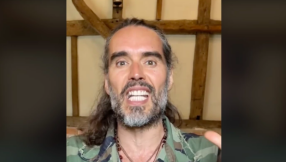Iranian pastor Yousef Nadarkhani has twice refused to recant his Christian faith during two court hearings held in Rasht, Gilan Province on September 25 to 26.
Sources close to Christian Solidarity Worldwide (CSW) indicate that recanting will again be demanded at sessions scheduled for September 27-28, and that if he continues to refuse, he will be executed thereafter.
CSW explained that Pastor Nadarkhani was tried and found guilty of apostasy in September 2010 by the court of appeals in Rasht. The verdict was delivered verbally in court, while written confirmation of the death sentence was received nearly two months later.
At the appeal in June 2011, the Supreme Court of Iran upheld Pastor Youcef Nadarkhani's sentence, but asked the court in Rasht, which issued the initial sentence, to re-examine whether or not he had been a practicing Muslim adult prior to converting to Christianity.
CSW says the written verdict of the Supreme Court's decision included provision for annulment of the death sentence if Pastor Nadarkhani recanted his faith.
Following investigation, the court in Rasht has ruled that Pastor Nadarkhani was not a practicing Muslim adult before becoming a Christian. However, the court has decided that he remains guilty of apostasy because he has Muslim ancestry.
CSW said Pastor Nadarkhani's lawyer, Mr Mohammed Ali Dadkhah, has made it clear to the court that the repeated demand for recanting is against both Iranian law and the constitution. The court replied that the verdict of the Supreme Court must be applied, regardless of the illegality of the demand.
CSW stated the death sentence for apostasy is not codified in the Iranian Penal Code. However, using a loophole in Iran's constitution, the judges in Rasht based their original verdict on fatwas by Ayatollahs Khomeini, the "father" of Iran's revolution in 1979, Khamenei, the Supreme Leader of Iran, and of Makarem Shirazi, currently the most influential religious leader in Iran.
According to CSW, Pastor Nadarkhani, of the Church of Iran denomination, was arrested in his home city of Rasht on October 13, 2009 while attempting to register his church. His arrest is believed to have been due to his questioning of the Muslim monopoly on the religious instruction of children in Iran.
Nadarkhani was initially charged with protesting; however the charges against him were later changed to apostasy and evangelising Muslims. His lawyer, Mr Mohammed Ali Dadkhah, a prominent Iranian human rights defender, is also facing legal difficulties. On Sunday 3 July a court in Tehran sentenced Mr Dadkhah to nine years in jail and a 10-year ban on practicing law or teaching at university for "actions and propaganda against the Islamic regime." He is currently appealing the sentence.
CSW's Special Ambassador Stuart Windsor said, "CSW is calling on key members of the international community to urgently raise Pastor Nadarkhani's case with the Iranian authorities. His life depends on it, and we have grave concerns regarding due process in this case, and also in that of his lawyer, Mr Dadkhah.
"The verdict handed down to Pastor Nadarkhani is in violation of the international covenants to which Iran is a signatory, including the International Covenant on Civil and Political Rights (ICPPR), which guarantees freedom of religion and freedom to change one's religion. It also violates article 23 of the Iranian Constitution, which states that no-one should be molested or taken to task simply for holding a certain belief."
Jason DeMars of Present Truth Ministries, who is also familiar with Nadarkahni's case, says that in its ruling, the 11th branch of Gilan provincial court said that Pastor Nadarkhani "has Islamic ancestry and therefore must recant his faith in Jesus Christ."
DeMars told ANS: "The judges, acting as terrorists who have a hostage, demanded that he recant his faith in Christ. They have stated that, even though this judgment is against their current laws, they will uphold the previous decision of the 27th Branch of the Supreme Court."
DeMars reported that when asked by the judges to repent, Youcef stated, "Repent means to return. What should I return to? To the blasphemy that I had before my faith in Christ?"
The judges said Nadarkhani should return, "To the religion of your ancestors, Islam." Youcef replied, "I can not."
"Youcef was reported to be happy, his faith strong," DeMars said.
DeMars said that Nadarkhani will be brought back to the court on September 27 and 28th for the sole purpose of demanding that he recant.
"My sources report that though they are being told that the case will be sent back to the Supreme Court. However, they are concerned that the provincial court will act upon a law, temporarily ratified by parliament, which would allow him to be executed as soon as Thursday," DeMars stated in an e-mail update.
DeMars explained: "This law dictates what should be done with apostates, depending on what type of apostasy has been committed. Section 6 - 225: 'when a person His or Her parents were Muslims at the moment they were trying to have baby, and He or She converts to another religious without claiming to be Muslim, He or She is a National apostate.'"
He added: "Section 8 - 225 states the procedure for handling a national apostate: 'the death sentence is the penalty for National apostate, but after the verdict was pronounced, He or She will be commanded to repent of what He or She has done and if He refuses to repent, He will be killed.'"
"The situation is, of course, quite difficult and confusing. We ask that you continue in prayer for Youcef.
"Ultimately, this is a spiritual battle against the demonic forces seeking to overthrow the faith of the believers there. Let's unite together in prayer, in the name of our Lord Jesus Christ, binding the work of Satan in this case. Remember that Youcef's life is in God's hands alone. No power is given to his captors besides that which the Father gives."













